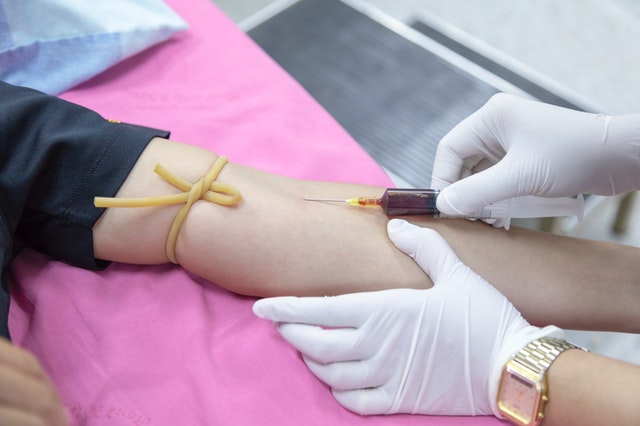Previously only discussed behind closed doors; chemotherapy’s aftermath of memory problems, fatigue, anger, and despair are now out in the open
While chemotherapy affects each and everyone differently, by understanding what is happening during this crucial time in your life, you can establish a sense of control.

With the knowledge of the physiological and psychological effects of chemotherapy treatment, you can have more confidence in your self-perceptions and can assist in your recovery. You can call upon your inner resources (and power) during and after your treatments to help heal yourself.
Rest assured that this strength is at your fingertips.
So, let us explore some of the explanations for what is happening to your body that will enable you to better deal with these confounding alterations in your life and very being.
First and foremost, realize that the stress that your body is under is enormous. In response to this added stress, your body produces cortisol, which is made by small walnut-sized organs above both kidneys called the adrenal glands. Imagine that you are an athlete about to compete in an event.
Your heart rate increases, your muscle tone becomes exaggerated, your pupils dilate to let in light as your brain prepares to control all these events and those to come. Well, your adrenal glands are in a race. They are overworked with the stress of worrying, fears of cancer, along with your efforts to control these fears and unknown future events.
You may have gone through surgery or are about to have your cancer removed. Constant stress causes your body to be in a heightened state of tension. This heightened state of arousal (tension) exacerbates your existing feelings of discomfort and vulnerability. The extra cortisol also adversely affects insulin utilization, fat, and sugar processing. You may find that getting up in the morning is difficult. You may have no energy to lift your head off the pillow and find that fatigue sets in faster and lasts longer. The adrenal glands’ production of cortisol due to stress is eventually altered.
This will further add to your state of depression and create abnormal responses within your brain.
The chemotherapy drugs that you presently take to control any remnants of your breast cancer drastically affect estrogen production. If you are not already menopausal, your body’s hormonal balance will be thrust into a rapid state of change. Normally, the onset of menopause is a measured process that allows your body to gradually adjust to the decrease in estrogen (peri-menopausal). However, breast cancer cells are often dependent upon estrogen, and, thus, part of the cure is to diminish this source of supply. With the decrease in ovarian and fat production or blockage of estrogen, comes the onset of a menopause-like state. You may find that your skin has a different texture, your sexual organs are drier, your mood has changed and there are rapid oscillations in the way you feel.
Things that normally were taken in stride now become much greater events in your life, which can, in turn, lead to a state of depression. Likewise, your body naturally produces testosterone that helps to maintain muscle and bone strength and works in conjunction with estrogen for sexual arousal. Prior to this instantaneous menopause, your testosterone levels were balanced by estrogen. Now, however, unopposed testosterone may contribute to your feelings of tension and anxiety, or it can cause you to yield to aggressive tendencies that in the past were more easily suppressed.
The brain has message transmitter hormones that are also in a state of turmoil. Your life has suddenly been altered by the discovery of breast cancer. Of course, you contemplate the worst. Surgery and chemotherapy add additional insults to your body. Your sense of worth, empowerment, and control over your life and destiny have been altered by the simple words that you have cancer. The daily pressures of life, raising and caring for a family, spousal obligations, and work activities have put you in a pressure cooker mode. Pressures, which you normally take in stride, become burdensome. This only compounds your anger, episodic mood swings, and anxiety or depression. Coupled with the psychological changes are the physical manifestations that may occur due to chemotherapy and surgery.
Your personal identity is now undergoing a transformation. This is not who you are or who you have been.
Added to this is the insult of memory and learning disruption; i.e., where are my keys?, did I do that errand today? This interference in memory and learning is called cognitive loss. Studies confirm that these alterations in your thinking may indeed be real. It is likely that the burden of having breast cancer and the additional strain of going through treatments compounded by your hormonal imbalance and altered cortisol levels, may contribute to the loss of memory and learning difficulties.
Not only do cognitive alterations exist and impact your daily activities, but they have far-reaching effects on your family members, friends, and business relationships. Some of the losses in memory and cognitive thought may even last years beyond the end of your treatment. You will be undeniably disturbed by these cognitive losses and may not know how to deal with them. This is especially true if you are told that these memory changes, physical disruptions, and social breakdowns are unique to you and not commonly shared by many women in these circumstances.
The first step towards helping yourself is to recognize that there is a problem. An honest and open discussion between you and your physicians (oncologist & surgeon) and counselor regarding your experiences and fears, needs to be brought out into the open so that you can better manage your altered lifestyle. Controlling, minimizing, or mitigating the hormonal, physical, and emotional side effects of chemotherapy is a challenge that should be embraced and understood rather than ignored or denied.
One has to realize that the art of medicine is a healing continuum that embodies learning about the disease process, formulating specific treatment options, and then redirecting these parameters to meet your personal and ever-changing needs. Treatments are far from perfect, but strides made within the past decade for curing breast cancer have been tremendous and are responsible for the continued health of countless women and men.
Treatment options are multidimensional, relying on the control of breast cancer through surgery, chemotherapy gene identification, and radiation therapy. Someday we hope to identify and isolate the genetic causes of cancer. Until such time current treatments reflect the present-day state of medical research and are still the most effective that humanity has ever yet known.
The healing of the body through the mind-body connection, given the appropriate environment, is legendary. This restorative process can only occur if attended to with the awareness of the problem and the desire to help oneself. Cancer is the Gordian Knot of our era. How do we cure cancer while maintaining the stability and health of the human body?
Multi-tasking:
Multitasking, or simultaneously performing many tasks at once, maybe disruptive to the thoughtful understanding of each task that your brain needs to analyze and formulate answers. Try riding five trains at the same time that are going in different directions. Which destination will you reach when traveling in such a chaotic pattern, and do you really save time? Or is it just a huge expenditure of your brain’s energy? The brain may process these tasks but there is a tool that must be paid. Multiple centers of the brain light up at once when you try to do simultaneous tasks. Remember that the brain is constantly working to maintain your life functions of breathing, circulation, fighting infection, controlling muscle movement, thoughts, vision, hearing, and speech to name but a few tasks.
Asking your brain to jump through hoops to satisfy your multiple comes at a cost. Multi-tasking boosts stress hormones, which are already zooming upward; wearing down your finely balanced internal system resulting in fatigue, loss of focus, and chaos. How often have you forgotten where you were driving when on the phone? A famous actress noted that she likes to save time by reading a book or watching a movie while having sex.
Emotional Imbalance & Counseling:
Emotional upheaval and physical distress will affect your family. Surgery upon the breast may leave you with feelings of sexual inadequacy. It is important that you realize that you are still the same woman within and that your family and friends love you.
Anger, when directed for a reason, is healthy; however, when it is free-floating and unbridled it will eat away at you and increase your overall stress level. Reach into your inner core and find a comfortable place where you can allow your mind to be calm – the place where loved ones exist and where smiles and laughter and good times are in abundance. Extend your hand and its warmth will be met by those that care about and for you.
Your mind has an amazing ability to heal you if you let it. No one denies that you have the right to feel bad, but wallowing in self-pity does not help your body to heal. What can be done with feelings of isolation, frustration, and anger? Confiding your feelings with a friend or counselor helps. Writing your worries down in a private journal to get them off your mind will often soften the tension and distress. Centers such as the Norma F. Pfriem Breast Care Center will be your advocate; friends await you there to direct you or just lend a hand on a bad day. Likewise, excluding your spouse, significant other, family, or friends in the attempt to shelter them, often works in the reverse. Openness allows for greater understanding and compassion. They, too, want to help and may also be feeling frustrated and alone. If you isolate yourself within an impenetrable barrier, those that care about you cannot share their loving warmth. You are counseled to let them into your life to calm the energy imbalances within you.
Exercise:
Jump-start your body with daily exercise. Feelings of well being, due to increased blood and oxygen flowing through your body, are essential and add to your peace of mind. Likewise, exercising daily produces pleasing substances called endorphins, which assist in the regulation of your happiness. The stress created by your body is translated into accelerating levels of cortisol similar to that found in the runner about to start a race. Exercise is a way in which the body can reduce these levels and calm down once again.
Smoking:
Smoking steals much-needed oxygen from your muscles and brain. The 40-plus toxins and nicotine present in cigarette smoke only serve to diminish the oxygen needed to heal you. Nicotine accelerates your heart rate and shrinks down blood vessels throughout your body. This crutch will, in the long run, be more harmful than helpful. Besides robbing your body of blood flow to your internal organs, it permanently alters the quality of your skin and adds additional risks of poor health.
Nutrition:
Your body needs healthy nutritional foods that can sustain it during these added days of stress. There is nothing wrong with the occasional splurge; however, eating a balanced healthy diet will nourish your body and mind. The human body and mind are amazing; however, they need nourishment. The tendency may be to eat out of frustration. And who could blame you? But in the long run, eating a diet low in saturated fats and sugars with moderated consumption of alcohol (which is a depressant), will afford you a greater opportunity to heal. Common sense tells us that water (which comprises most of our body), grains, fresh vegetables, unsaturated fats, and proteins will replenish the energy source for your brain and motivate your body.
Omega 3fatty acids are important for the nerves and brain. Fat is a large component of the cells that comprise the nervous system. Take supplements of good quality.
Vitamins such as Zinc and B complex will soothe your mind. Calcium and magnesium will nourish your bones and allow muscles to function properly. Other vitamins should be discussed with your physician prior to starting. During your treatments, it is important to ask your oncologist and surgeon which vitamins are acceptable. Likewise, a consultation with a nutritionist knowledgeable about various effects of food and supplements on your treatment will be beneficial. There are numerous books that will augment your understanding of your added nutritional needs, found in bookstores or on the web.
Is chemo-brain real or imagined?
The crux is that normal patterns of forgetfulness occur with the natural aging process. When the emotional intent of the thought and reality of breast cancer is added to the mass of swirling thoughts that the brain has to master minute by minute, it is no wonder that you become overwrought. Family, business and personal obligations, fears of the unknown, and the potential ramifications, estrogen and hormonal imbalance, physical discomfort from surgery or chemotherapy, all contribute to the feeling of having a foggy brain.
You may feel fragile, confounded by the thoughts of illness. The unknown is always worse than actually knowing. Overwhelmed and distraught, your mind has no peace. Constant turmoil precludes clear thoughts. Cancer is a bummer to have. It threatens your very existence. You can overcome these dreaded events that you are going through and come out with a stronger and healthier woman. It may be no solace to know that many have traveled the same path, but it does help to understand that your happiness is dependent on your outlook.
Living your life, as best as you can, during this difficult time, will help your body and mind. Our cells are renewed each day, giving us the opportunity to grow and become stronger. Healing requires time, positive energy, patience, and love of self. Like a paper cut upon your finger, which is initially sore, your healing will require time and soon be a part of your past.
Balance:
Try meditating. This can take various forms. Thinking and repeating to yourself that you are healthy and happy is a self-fulfilling prophecy.
Visualize yourself being well, strong, and healthy. Visual imagery has been shown to affect the body in a very positive manner.
Surround yourself with friends who are calm and generally optimistic. Negative individuals give off negative energy. Positive energy buoys us up and recharges us. Would you not be more pleased to be around a person who smiles rather than a frequent frowner?
Laughter is contagious and in all likelihood calms the brain down or relieves it of tension.
Focus on what really matters to you. If you find that you are forgetful, make a list of the things that you need to remember. Busy people have a lot on their minds and need reminders. Daily stresses of living exaggerate everyone’s forgetfulness.
Take a health break when you can. Stop and breathe, take a brief walk, read an enjoyable book or magazine to clear your mind.
Start a log of your journey. Record the good and the not-so-good. Not as a reminder of these events but to alleviate your mind from having to remember them. Air your thoughts in private and with your family, friends, and a counselor or therapist who will guide you through this turbulent period.
Some days may be bluer than others but beautiful golden mornings and stunning sunsets await you.
With your loving family and friends on your side, you will be able to reach deep within yourself to find a center of calm within what must seem like an endless storm. Take the time you need for your well being. Peace and tranquility emanate from within our central core.
Difficult as it may seem during these life-altering times, having a positive approach and surrounding yourself with the warmth of your family and friends will help to overcome the hurdles faced with having breast cancer. Your mind is an amazing organ of growth and healing. Your mind and body are one. Together they have been known to accomplish unparalleled and only dreamt of deeds.
Article Source and Author: Dr. Jeffrey Rosenthal



